Since late 2022, hundreds of students – most of them girls – across more than 50 schools in Iran have suffered what has been described as suspected poisoning. The symptoms include headaches, heart palpitations and lethargy. Some said they were unable to move. Some described smelling tangerines, chlorine or cleaning agents.
More than a thousand schoolgirls were admitted to hospitals due to this mysterious illness. Many believe the poisoning incidents to be “revenge” attacks by fundamentalist groups who do not want girls to attend school.
Meanwhile, interviewed by the Fars news agency, Deputy Interior Minister Majid Mirahmadi said the “plotters of the poisoning of girls” were seeking “to close the schools”.
He added, however, that those behind this action were also trying to spark more protests in the Islamic republic.
On the other hand, some opposition groups abroad are blaming government supporters who accuse women and girls of spearheading the largescale anti-government protests over the death of a woman in the custody of Iran’s morality police.
Even as investigations continue to determine potential contamination sources, some experts and reports have suggested that the incident could be a case of mass psychogenic illness, commonly known as mass hysteria.
According to an article in Psychology Today, the “poisoning” could be just anxiety-triggered mass hysteria.
According to the article, the “poisoning” incidents should not be taken too seriously because there is no evidence of a deadly chemical, there have been no fatalities, and practically all victims have fully recovered.
Many experts find similarities between what is happening in Iran and what happened in the Israeli-occupied West Bank and Afghanistan, where some schoolgirls have in different periods exhibited similar symptoms.
In March-April, 1983, around a thousand Palestinian schoolgirls in occupied West Bank complained of headaches, vertigo, blurred vision, nausea, and weakness. However, some studies later found it psychological rather than a biological attack.
The World Health Organization (WHO) documented a similar phenomenon in Afghanistan between 2009 and 2012, with hundreds of girls across the country complaining of strange smells and poisoning.
No evidence was found to support the suspicions, and the WHO said it looked like a “mass psychogenic illness”.
What is mass psychogenic illness?
Mass psychogenic illness (MPI), also known as mass hysteria or collective hysteria, is a phenomenon in which a group of people exhibit similar physical or psychological symptoms with no apparent medical or environmental cause. MPI is believed to be caused by psychological factors, such as stress, anxiety, or a shared belief system, rather than a physical illness or toxin.
MPI can manifest in various forms, including respiratory distress, dizziness, nausea, headaches, and fainting. The symptoms are usually non-life-threatening and tend to be self-limited, meaning they resolve on their own without any medical intervention. The onset and spread of MPI can be rapid, and it can affect people of any age or gender.
MPI often occurs in close-knit groups, such as schools, workplaces, or religious gatherings, and tends to be more common in women than men. Various factors can trigger it, including rumours, media coverage, stress, and social or cultural factors.
What happened in Iran?
Since November, hundreds of mostly female students in dozens of schools have been taken to hospitals in Iran with symptoms of poisoning such as nausea, vomiting, shortness of breath, dizziness, and fatigue. The first known case was reported at a school in Qom, where 18 schoolgirls fell ill and were taken to hospital on November 30.
Similar incidents since then have sparked outrage across the nation.
Iranian President Ibrahim Reisi appointed Interior Minister Ahmad Vahidi, Intelligence Minister Ismail Hatib and Health Minister Bahram Eynollahi on March 1 to investigate the suspected poisoning incidents.
On the other hand, Iran’s supreme leader Ayatollah Ali Khamenei said that it was an “unforgivable” crime that should be punished by death if it’s done consciously.
“If it is proven deliberate, those perpetrators of this unforgivable crime should be sentenced to capital punishment,” he said.


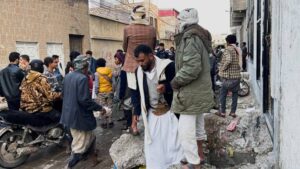

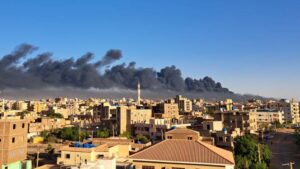

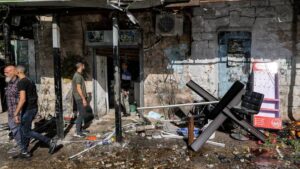






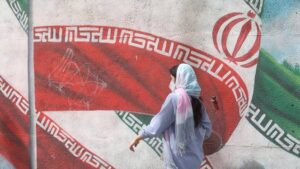






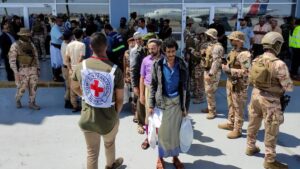



![Deputy Minister of Saudi Foreign Ministry, Waleed El Khereiji [R], meets with Syrian Minister of Foreign Affairs Faisal Mekdad in Jeddah, Saudi Arabia, on April 12, 2023.](https://www.infonewsall.com/storage/0m_153832_sau20230412saudiarabiasyria_1681335069352-300x169.jpg)










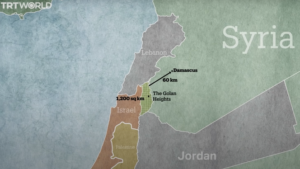




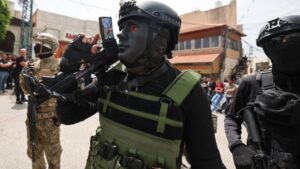









Be First to Comment